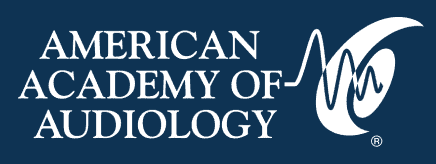Three years ago, I made the best decision of my career. After more than thirty years as a clinical audiologist serving adult and geriatric patients, I took the leap and became an educational audiologist. Honestly, I was terrified that I wouldn’t be good at it…not because I don’t like kids, after all I’m a mom and a grandma! My doubts and fears came from my lack of training in the area. I had to learn a whole new vocabulary and become good friends with a vague acquaintance named Roger, and a new one I’d never met…RedCat. Is it FM…or DM? Which receiver attaches to that cochlear implant…and does it need a boot, or a whole new door? Or…does it magically get “turned on” inside the child’s device by an installer? Who pays for it? And don’t even get me started on the difference between a 504 and an IEP!
Educational audiology is a small and, in my humble opinion, underrated specialty in audiology. Most audiologists especially “seasoned” ones like me, never received formal training in these things I’ve mentioned. Thankfully, I have found wonderful mentors in other local and national educational audiologists, or “EdAuds” as we like to call ourselves, who have shown me the way over the past three years.
Now there is a brand-new resource for those of you who are considering making this change! Through a partnership between the Educational Audiology Association and the American Board of Audiology, a new certificate program has been developed that will launch in August. Certificate Holder-Educational Audiology (CH-EdAud) will be a self-study course for licensed audiologists that focuses on the specific skills an educational audiologist needs. There are seven modules with two-to-three lectures each that you take at your own pace. You have a year to finish it, and it is based on the fourth edition of the Educational Audiology Handbook.
A certificate program is different than a certification because instructional material is provided so you can study and learn before you take the assessments. It is designed to teach you a new skill and not just assess a skill you have already mastered!
If you have ever considered making this leap to educational audiology or have been doing it for a few years but want to improve your skills, like I do, I would highly encourage you to investigate this new certificate program. As I said at the beginning, it has been the best move of my career. The work-life balance is amazing, my tools of the trade are now a unicorn shaped bubble machine, a tablet loaded up with the fan favorites…Bluey and Paw Patrol, fidget toys, Playdoh, and, oh yes, an otoscope! I spend a lot of time on the floor looking in tiny ears, dancing and singing while I convince a special-needs preschooler that my OAE probe is fun, and best of all, I haven’t heard one single patient in three years ask me, “What? What did you say?” when I go to call them from the waiting room! Go check out the new educational audiology certificate program today. I’m pretty sure you’ll be glad you did.
Kristin Samuelson, ABAC
ABA Immediate Past Chair
Recent Posts
The Perfect Blend of Professional and Personal
AAA 2026 is coming to San Antonio—right in the middle of Fiesta, one of the city’s most vibrant celebrations. This year, it’s easier than ever…
CMS Sets Medically Unlikely Edit for Key Audiology Codes
The Centers for Medicare and Medicaid Services (CMS) has established a Medically Unlikely Edit (MUE) of two units per date of service for Current Procedural Terminology (CPT®) codes 92629, 92632,…
Allergies in U.S. Adults
Individuals who live in colder areas of the country may be eagerly awaiting the arrival of spring and its associated warmer weather. Others may be…



